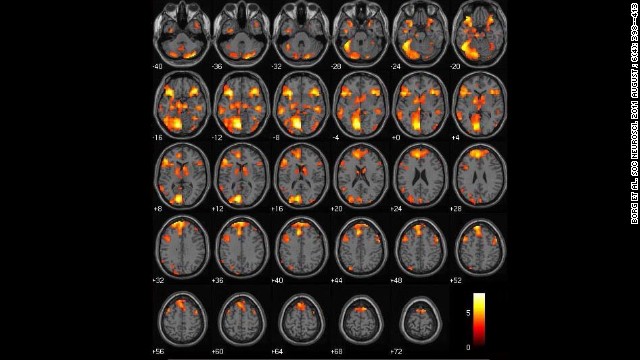by Melinda Pillsbury-Foster
Most people
today are familiar with the rule of 5%-15%-60% and 20%. Five percent
of a population will consider a new idea of try someone once.
Fifteen percent will try out a new idea if they are desperate. 60%
will notice when around 15 – 20% are using a new product or accept
a new idea and adopt it themselves. This varies by the status of
those first users.
20% of any
human population will never accept a new idea.
In 2006 I
watched a news conference featuring Dick Cheney. Cheney struck me as
having no sense of caring about the people who had died or the babies
being born who were deformed by the use of Depleted Uranium. At one
point I felt he was simply annoyed with having to spend time
answering the questions. The photos of these sad little babies
seemed to have no impact. It made my skin crawl.
Suddenly I
asked myself, “Is Dick Cheney a psychopath?”
Today, many
more are asking this question. In Cheney's latest round of media
attention the question of whether or not he is a psychopath occurred
thousands of times.
I had begun
studying the work of Dr. Robert Hare on psychopathy a few months
previously.
I googled
the word “psychopath.” A couple of thousand hits showed up.
Today when you google the term 9,950,000 results appear. The sites
which came up in 2006 showed a lot of variety in understanding the
term. Many still think the term means only serial killers, but this
is changing.
Professionals
and increasing number os lay people have come to understand most
psychopaths are not violent, their behavior exhibits through a lack
of conscience and empathy.
This
illustrates the process of adoption of a new idea in a population.
The first
adopters for understanding the condition, a small percentage of
people, the 5% - 15%, finally hit the 60%. This does not mean the
60% have a clear understanding of the condition but that they know it
exists and vaguely what the term means.
These
trends happen over a period of time as the idea is considered and
adopted first by the 5%, then by the 15% and then begins to gain
ground in the 60%.
People are
by nature conservative in refining their understanding taking cues
from those in authority and examining the evidence.
Articles
published which use the term or about psychopaths are now into main
stream publications. Financial theories are now taking the condition
into account.
This
process for adoption took longer than eight years. Hare began
publishing on the subject over twenty years ago. But the acceptance
of the existence of the condition is now established.
Probably
the most significant advance in understanding and acceptance came as
a result of the use of the fMRI, a form of brain scan, which revealed
the lack of reaction in the amygdala of criminals believed to be
psychopaths when shown films of shocking harm done to people.
The term
'Psychopath' was first used in 1880. In the 1930s another
psychiatrist began using the term, 'sociopath.' Most practitioners
today consider the terms interchangeable.
When you
google the term, Psi Vampire, you get 483,000 results. Tellingly,
many of these originate from websites which state they are in place
to assist psi vampires.
Here is the
first site which came up, the second from the search which claimed to
be created for the use of Psi Vamps.
All information on
this site or on any sites linked to it should be taken as purely
opinion and not fact. We are here to carry on the information
in an educational manner, and do not encourage using this information
in a harmful or distasteful manner. Keep your minds open while
being sure to keep them skeptical.
I myself was very
skeptical when my awakening occurred. In fact, it wasn't until
a few months after that my abilities grew to the point where I knew
that what I was reading and learning pertained to me.
So, with that out of the
way, here is what we have to offer you;
Well, what are you
waiting for? I hope you find the site informative and thought
provoking. If you have any questions or comments, email The
Author at: psy@thecoven.org
Deep Feeding
This
site, psychicvampire.org/resources/feeding/,
provides detailed information on how to engage in three forms of psi
feeding, ambient, contact, and deep feeding. These terms, with
slight variations defining the same basic techniques, occur again
and again and are clearly terms are referring to a common body of
understanding. This is also true of the instructions for the newly
practicing psi vampire.
These
is strong evidence of an existing, but relatively small, community.
Hits were about 550.
Deep
Feeding it reports as, “feeding
off a specific persons core soul energy.”
Not
surprisingly, the sites state permission should be given before deep
feeding takes place. Many psi vampires show evidence of concern for
those from who they take energy.
The
process of adoption and the small size of the population who claim to
be psi vampires points to a longer span for acceptance. But the
evidence online points to a population who believe they are taking of
energy which they did not, themselves, produce.
The
justifications for this, which could be expected, strengthen the
possibility psi vampires exist.
The
ability to feed on the energy of others is not refuted by the
evidence now building on the quantum nature of life, but there has,
as yet, been no medical consideration of the issue as has already
taken place with psychopaths.
If
this is not a mass hallucination this will happen, however, leaving
other questions to be considered.
The
question of what happens if a psychopath is also an energy or psi
vampire is just one of these.









